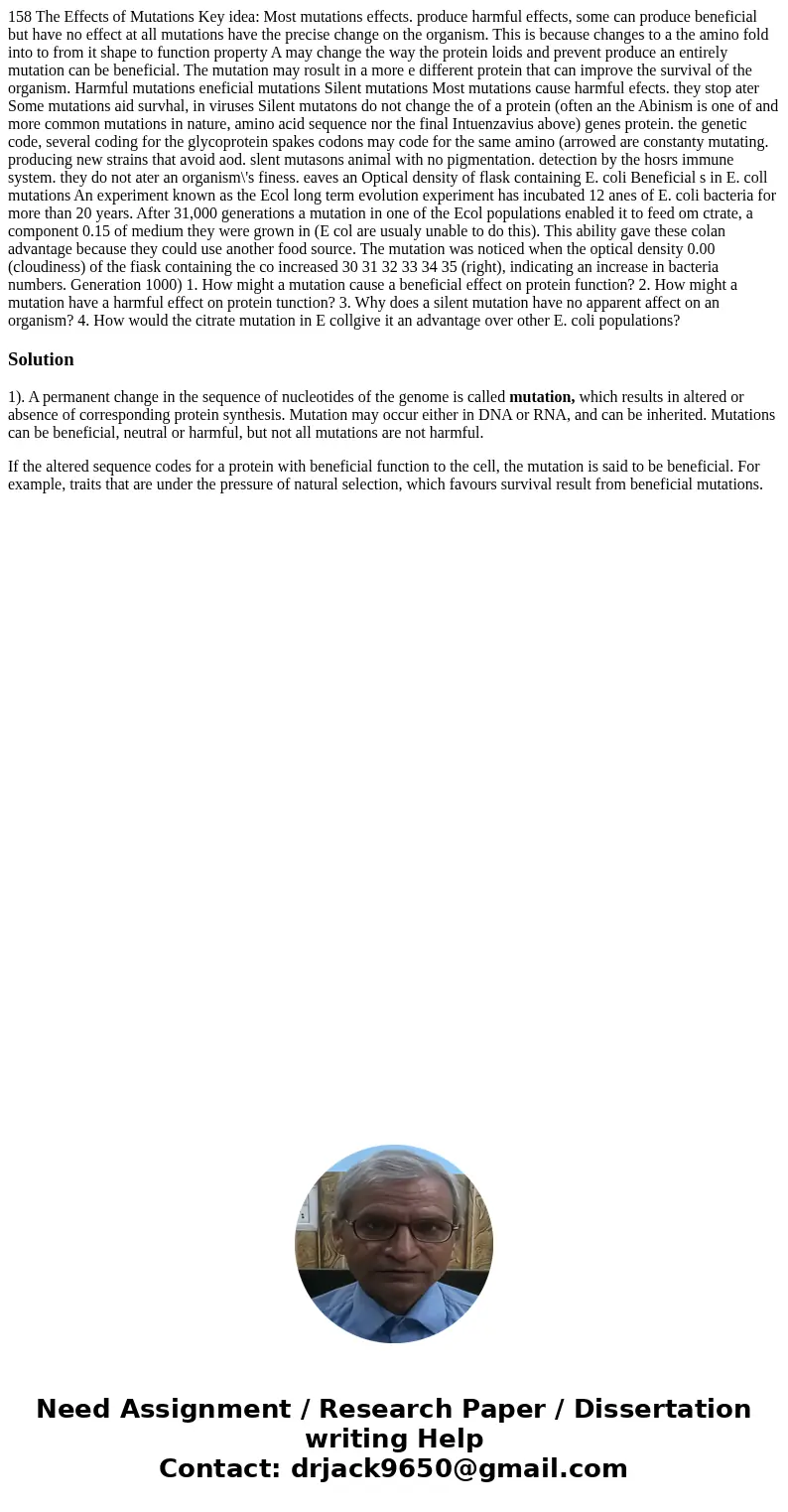158 The Effects of Mutations Key idea Most mutations effects
158 The Effects of Mutations Key idea: Most mutations effects. produce harmful effects, some can produce beneficial but have no effect at all mutations have the precise change on the organism. This is because changes to a the amino fold into to from it shape to function property A may change the way the protein loids and prevent produce an entirely mutation can be beneficial. The mutation may rosult in a more e different protein that can improve the survival of the organism. Harmful mutations eneficial mutations Silent mutations Most mutations cause harmful efects. they stop ater Some mutations aid survhal, in viruses Silent mutatons do not change the of a protein (often an the Abinism is one of and more common mutations in nature, amino acid sequence nor the final Intuenzavius above) genes protein. the genetic code, several coding for the glycoprotein spakes codons may code for the same amino (arrowed are constanty mutating. producing new strains that avoid aod. slent mutasons animal with no pigmentation. detection by the hosrs immune system. they do not ater an organism\'s finess. eaves an Optical density of flask containing E. coli Beneficial s in E. coll mutations An experiment known as the Ecol long term evolution experiment has incubated 12 anes of E. coli bacteria for more than 20 years. After 31,000 generations a mutation in one of the Ecol populations enabled it to feed om ctrate, a component 0.15 of medium they were grown in (E col are usualy unable to do this). This ability gave these colan advantage because they could use another food source. The mutation was noticed when the optical density 0.00 (cloudiness) of the fiask containing the co increased 30 31 32 33 34 35 (right), indicating an increase in bacteria numbers. Generation 1000) 1. How might a mutation cause a beneficial effect on protein function? 2. How might a mutation have a harmful effect on protein tunction? 3. Why does a silent mutation have no apparent affect on an organism? 4. How would the citrate mutation in E collgive it an advantage over other E. coli populations? 
Solution
1). A permanent change in the sequence of nucleotides of the genome is called mutation, which results in altered or absence of corresponding protein synthesis. Mutation may occur either in DNA or RNA, and can be inherited. Mutations can be beneficial, neutral or harmful, but not all mutations are not harmful.
If the altered sequence codes for a protein with beneficial function to the cell, the mutation is said to be beneficial. For example, traits that are under the pressure of natural selection, which favours survival result from beneficial mutations.

 Homework Sourse
Homework Sourse